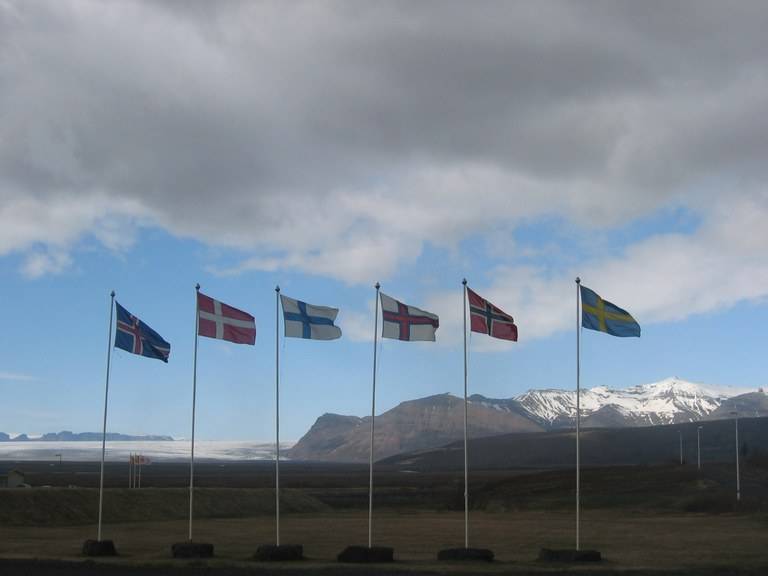Most countries in the Nordic area top the rankings for human development, quality of life, education, lack of corruption, gender equality and peace, leading some (such as this author) to argue that theirs is a refined, a more reformed and indeed a more evolved way of living. As is with all such cases, the sociology of the phenomenon stems out of the political-economy adapted within these states. Like the ‘collective capitalism’ introduced and practiced by Japan post World War II, today’s Nordic form of governance intrigues many bystanders. The countries have survived the economic crisis of 2012, which still beleaguers many of the European states. They have adapted an almost perfect balance of openness to the globalised form of the economy while integrating strong social egalitarianism in the form of state owned (and provided) necessities of life. In other words, they have embodied ‘democratic capitalism’ in its true sense, or at least in the form that most free market adherents promise to eventually reach.
And yet, with all that said the fact remains that this system of economy, governance, politics and social evolution is just not sustainable.
The social democracies have been travelling on bumpy roads for some time now and the recent events do require sincere contemplation. The loss of Helle Thorning-Schmidt’s Social democrat’s government in Denmark for example says a lot about the philosophy’s popularity. So does the win of Juha Sipilä’s Centre party. In the same trend, the non-socialist parties won an overwhelming majority against the incumbent left parties in Norway, resulting in the Progress Party forming the current coalition government with the Conservative party. In Sweden, the Sweden Democrats garnered a 5.7% support in 2010 elections, increasing its base to 12.9% in the 2014 elections and their support is expected to keep increasing in the future.
The fall of social democrats’ popularity in these Nordic countries and the general push towards the center-right philosophy, has been accompanied by a blatant surge in support for anti-immigrant parties, especially of the Eurosceptic mindset. The connection between the two is of much importance.
The social democrat model is based on the premise of government spending on necessities. This obviously requires a mammoth share of spending which is distributed after collection from the general populace. Immigrants or individuals who are not full citizens of the countries and hence do not fall under the tax bracket, do not invest in these funds. However, while they are not eligible for social welfare programs, they do enjoy the infrastructure and the general socialist attitude exhibited both by the government and the community. As is with any form of governance, there are loopholes. As is with most immigrants, these loopholes tend to be savagely exploited. However, this is far as the connection between the two phenomenon go.
The argument that immigrants are a burden questions the ethos deeply engrained and nurtured in the philosophy of socialism. Doesn’t socialism speak of the [wo]men irrespective of their creed, colour, affiliations, mindset or background? If so, how then do these Nordic countries justify the current general trend of spreading the anti-immigrant mantra?
The recent election results in these countries can be attributed to frustration of the hoi polio. While these economies have indeed survived the recent crisis, they have shrunk. The flow of money has affected the economies and the constriction has led to a difficulty of the government’s ability of spending funds for the social welfare of the common man. Other factors have also contributed to the said conditions of these countries. Industries built by the pre-world war world are not allowed to continue, for many reasons: terms of trade, carbon emission, consumer market, product viability etc. The use and insistence over using local languages to do business, and the almost irrational reluctance of adopting English as a lingua franca, has discouraged the inflow of both capital and workers in the areas. In the particular case of Finland, the ‘iphone revolution’ has allegedly (according to the former Prime Minister, Alexander Stubb) singlehandedly destroyed Nokia, the spine of the country’s economic revival.
And yet, none of the above factors attribute the economic slumping to immigrant population. With an ageing population, increasing divorce rates and disinclination towards traditional forms of families, the countries are in a desperate need of human capital. Moreover, the anti-immigrant stance is based on a faux mindset one that stems out of a restricted and narrow way of looking at things. Some attribute this to the absence of exposure of the layman to the merits of an international community. A recent survey conducted at the University of Tampere for example shows how the student population at the institution is “more liberal than the majority of the Finnish population”. The researchers attribute the “more international thinking” and exposure of the students for this difference of opinion.
Leonid Bershidsky in a recent article supported the above conclusion by insisting that ignorance was fueling anti-immigrant victories in the Eurozone. The actual number of immigrants in the countries was far less than those insisted upon by the leaders or the locals. The pitch of liberation from the immigrant burden was simply half-baked and misrepresented the human geography of the countries. This as a result, exaggerated their economic and social burden while undermining their contribution.
All of this said, the center-right is in power in most of the biggest countries of the Nordic region. The fact remains that they were elected and are a result of the frustration of the population with the preceding governments. However, can this change be attributed to a disregard for the social welfare system? Only time can really tell. Let’s wait to see if the political inclination of the locals of today is but a phase or whether it represents a true [even if ironic] revolution of mindsets.






